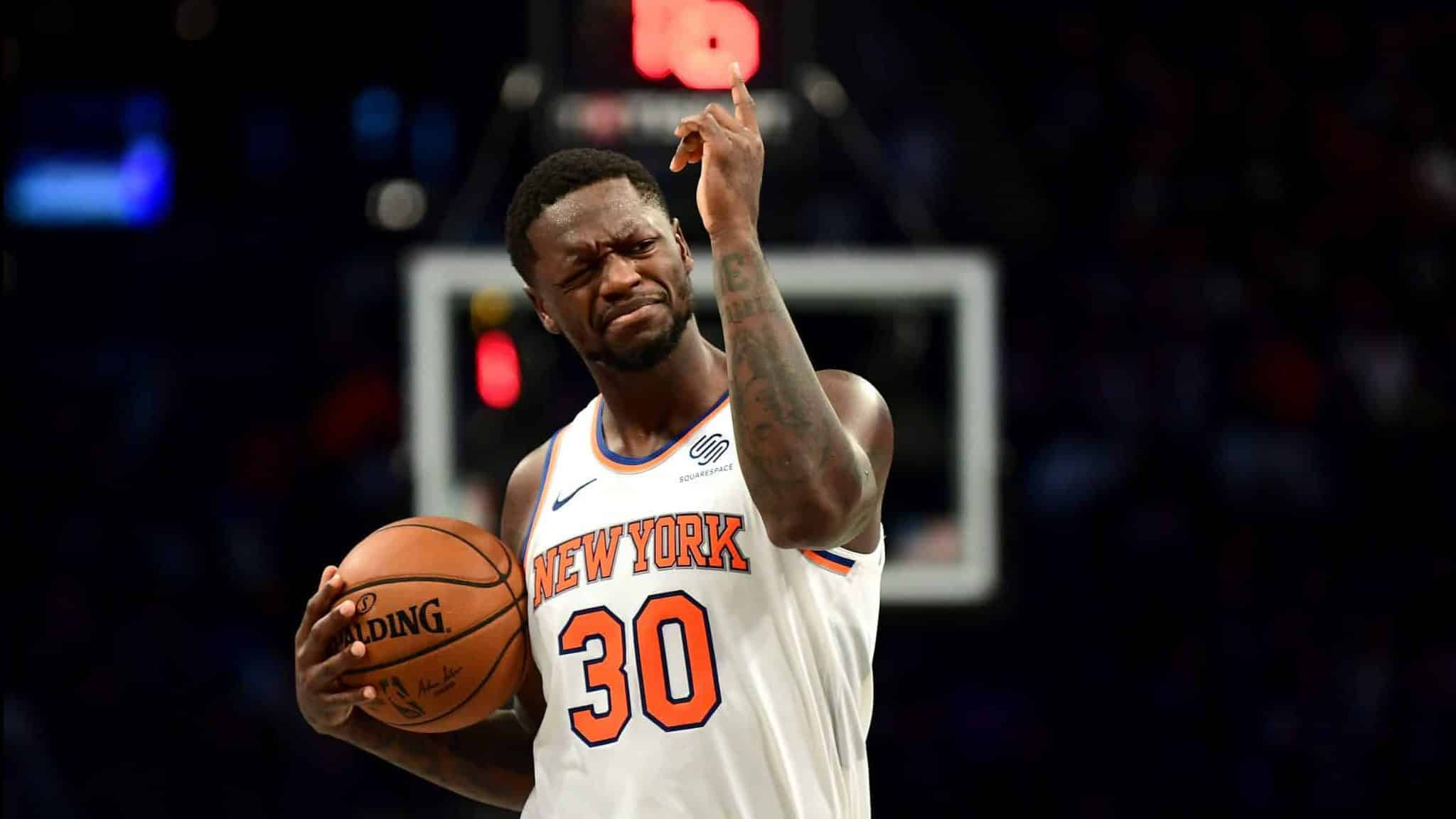Knicks Can't Erase Disappointing Summer, But They Can Still Get Something Out of It

On January 31, 2019, the Knicks traded Kristaps Porzingis to Dallas for Dennis Smith Jr., DeAndre Jordan, Wesley Matthews and two future first-round picks. The Mavs also received Courtney Lee and Tim Hardaway Jr. in the deal, but the trade was always about Porzingis’ elite upside and his fit next to superstar Luka Doncic.
Amid a reported trade request from Porzingis, the Knicks brass dipped into the spin zone to try and paint this as a win, recouping a former lottery pick in Smith and ridding the team of a player who was going to force his way out eventually. That would’ve been disappointing, but understandable, assuming you believed even a little bit of what the Knicks were saying. Instead, James Dolan hit the airwaves to say this:
Ah.
Immediately, the owner proclaimed the cap space as the real winning element to the deal. New York would be able to use the space opened up by not signing their franchise player to lure other guys who would become new franchise players. Assuming such players were interested, of course.
They weren’t.
So, the Knicks were already guaranteed to lose on optics after setting the bar as high as humanly possible – what else is new. They also, however, put together a fairly reasonable summer that only looked bad because of Dolan’s big mouth.
New York was able to resist throwing truly insane money at the second and third tier of free agents, and held off handing out maximum term commitments while adding complementary pieces who have clear and obvious skills. It’s that combination of things – the projectable attributes, relatively modest salaries and short-term deals – that would make such players theoretically attractive on the trade market.
Here’s what the Knicks did last summer:
- Julius Randle, three years for $62.1 million (partial guarantee on year three)
- Marcus Morris, one year for $15 million
- Elfrid Payton, two years for $16 million (partial guarantee on year two)
- Bobby Portis, two years for $30 million with a club option on the second year
- Reggie Bullock, two years for $8.2 million (partial guarantee on year two)
- Taj Gibson, two years for $20 million (partial guarantee on year two)
- Wayne Ellington, two years for $16 million (partial guarantee on year two)
There’s a lot of players who could definitely help contenders at a price point that won’t make trades impossible or unappealing. Ultimately, it comes down to whether or not the Knicks can be trusted to actually get those deals done. Skepticism is warranted.
The Knicks should absolutely be able to turn some of those players into futures, whether that’s younger players or further draft capital.
Multiple reports have surfaced that indicate the Knicks and Morris are interested in extending this relationship, but on Monday Adrian Wojnarowski broke that New York will at least stay open to dealing Morris. The Knicks are expected to want a first-round pick out of such a deal, and it wouldn’t be hard to re-sign him in the summer if he really does want to come back.
Ian Begley noted that the Hornets, who could certainly use a bucket-getter up front, have touched base about Julius Randle, who is a solid player that’s simply been exposed as the go-to guy on a team that’s severely lacking in complementary talent.
Nobody is expecting the world should the Knicks try to flip players like Portis, Bullock, Ellington, or Gibson, but there’s nothing wrong if New York leaves Thursday’s deadline with even an extra second-round pick or two. This isn’t the type of team that should be turning away future picks, regardless of how low they might be.
And although the Knicks may run into a logjam, with six first-rounders and four second-rounders headed their way in the next four seasons, amassing more is not a bad thing. If the Knicks find themselves with a roster crunch they can try and flip some of those picks in other deals, as hopefully by then they’ll be in the market for actual roster help.
For as bad as it looks considering the initial plan, the Knicks’ offseason wasn’t all that terrible for a team in their position. Whether they can close the deal and continue to spin reasonable, if redundant, additions into futures, then it might actually become a real win in the long run.
Just not in the court of public opinion.
Post a comment